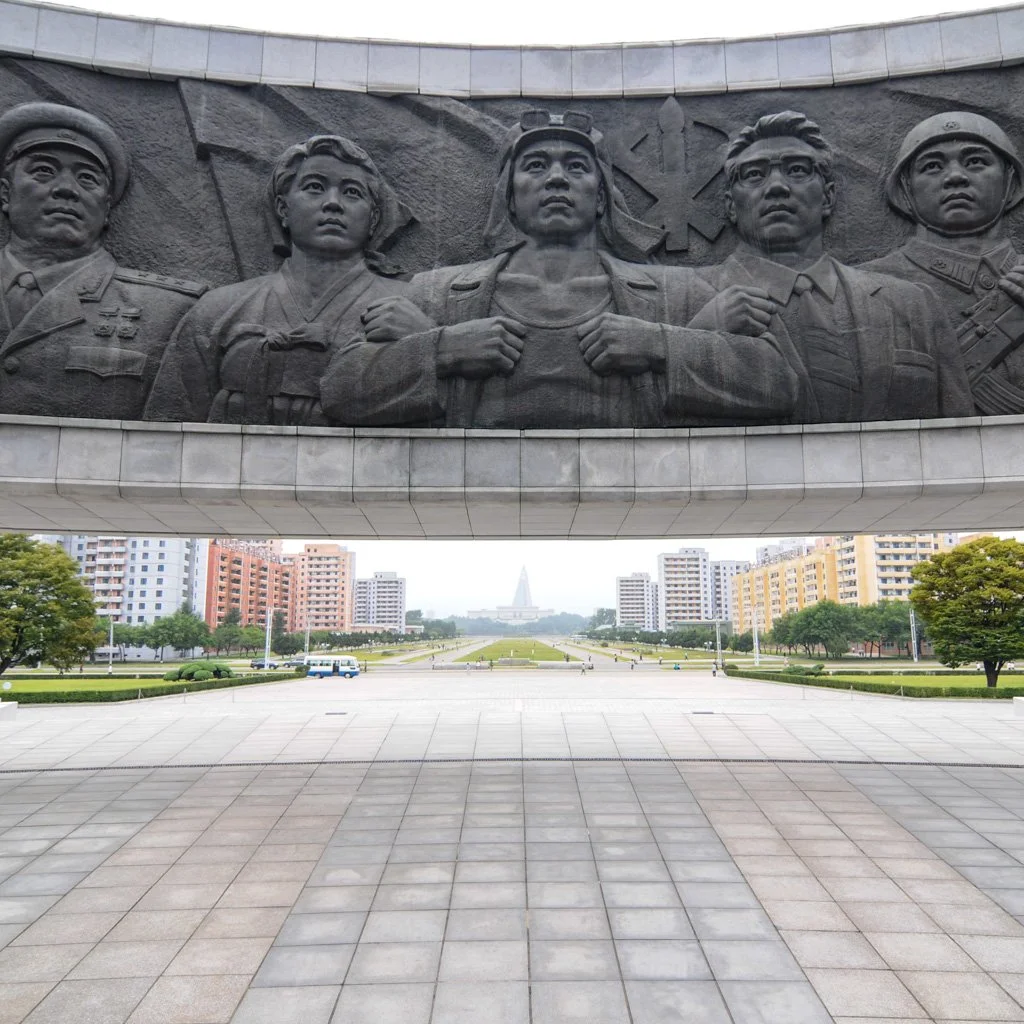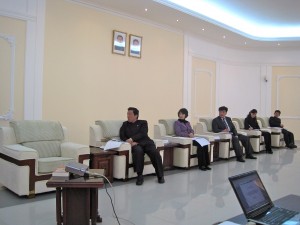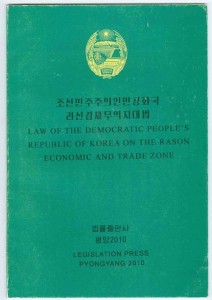On April 15th, 1912 the future path of both James Cameron’s career and the modern history of Korean peninsula began . For it was that day that man’s hubris was checked in the North Atlantic and “the lodestar of the Korean revolution” was born. (By the way, have you ever noticed that certain English words – lodestar among them – seem to have been given life only by KCNA? Have you ever seen the word ‘flunkyism’ in a publication not related to Korea?) 100 years later, Kim Il Sung’s grandson provided a spectacle that no North Korean had seen since the early 90’s. He gave a public speech. South Korean media outlets fell all over themselves as they rolled out audio analysts and psychologists to discuss the similarities between Kim Jong Un and Kim Il Sung. The link was also explicitly made on North Korean TV, with a newscaster marveling at how Kim Jong Un had the look of his grandfather.
If the style was his grandfathers, the content was his dad’s. “First, second, third…in a hundred ways we must go out and strengthen the people’s army,” he said, while at the same time emphasizing that prior accomplishments meant that North Korea was safe from its enemies. "Superiority in military technology is no longer monopolized by imperialists, and the era of enemies using atomic bombs to threaten and blackmail us is forever over," Kim said.
He threw out military terms a total of 56 times in his speech, and economic ones only 9 times, according to a count done by KBS, a South Korean broadcaster.
This weekend, despite starting badly for the North Korean authorities with the failure of the satellite launch, was always going to emphasize the military. The military parade that preceded Kim’s speech appeared to unveil a new missile.
North Korea’s experiments in economic reform are far from fully articulated. The ambivalence towards change is still there and in these early days of Kim Jong Un, it is unsurprising that they’re emphasizing the sure bet over the unsure one.
The telling thing is that this is very much part of Kim Jong Un’s process of finding the balance between his father and grandfather, before he can establish something of his own path. The content of his words in last couple months have seemed increasingly like Kim Jong Il, while his gregarious and relaxed manner have seemed every more like his grandfather.
Nonetheless, reminding people of the Kim Il Sung era won’t suffice for long. He will at some point have to start demonstrating the fruits of economic growth, including the material comforts that his grandfather oversaw for much of his tenure. Citizens of North Korea, for now, will go back to their daily lives, with a clearer impression of Kim Jong Un: One that he is very much the inheritor of his paternal lineage.
Kim Il Sung’s Juche states that “man is the master of all things”. For now, the world – and most of all, North Koreans – are watching to see if a single man can successfully master the tricky political economy of the DPRK.












